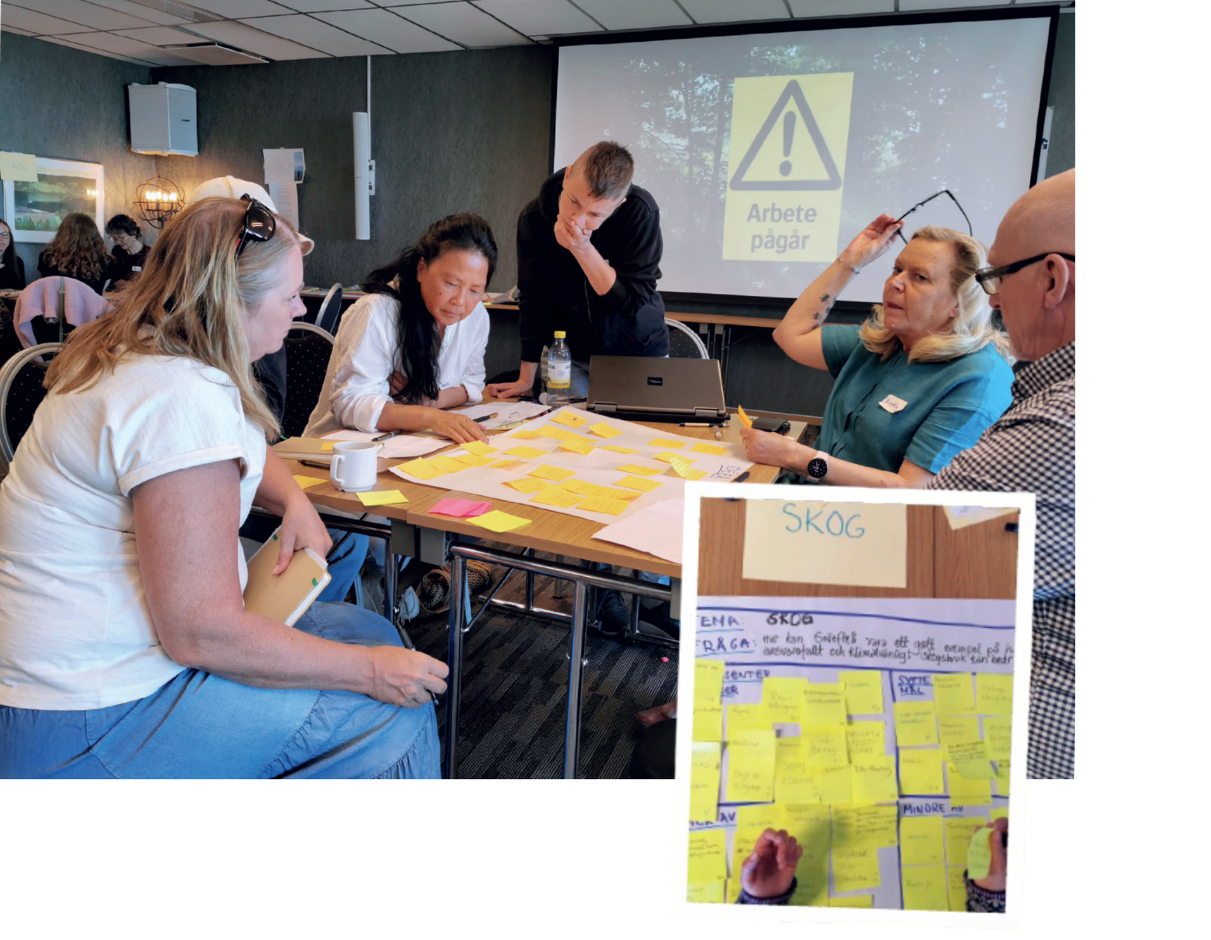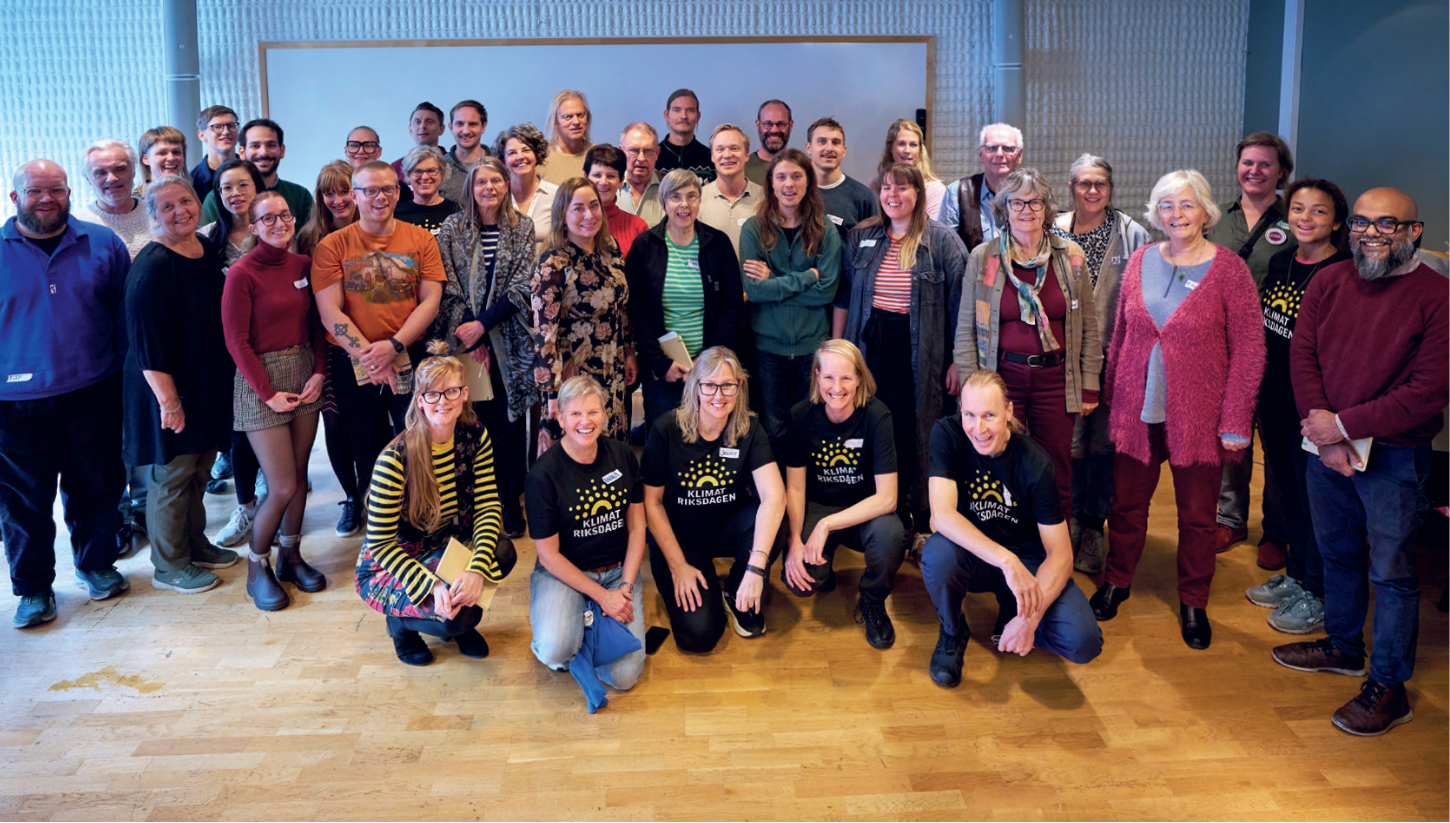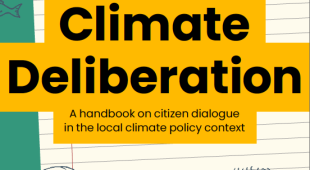How can we efficiently engage citizens in conversations and decision-making for climate change? Our partners in Malmö recently tested a method developed by the Klimatriksdagen, who have conveniently shared all their tips and tricks for creating a climate citizen assembly in a handbook. This document will guide you through their process, what they’ve learned from leading Citizen assemblies, and what you can take away from the experience. This article will provide you with a snapshot of all the insights you can gain from reading the Klimatriksdagen’s Climate Deliberation Handbook!
In 2024, the city of Malmö held a climate citizen assembly, or as they called it: a Climate Deliberation (Klimatrådslag). This initiative brought together around 40 residents to discuss the climate transition and develop policy proposals. As an oftentimes polarizing topic, good conditions are needed in order for these deliberations to go smoothly and be fruitful. The Klimatriksdagen, who developed the method tested by Malmö, collected all the tips and tricks for conducting a successful Citizens’ Climate Deliberation in a handbook, which was translated into English in order for municipalities all over the EU to be able to profit from their experience. This handbook will guide you through the process step by step, providing details on preparation, recruitment, event coordination and follow-up.
If we can do this in a couple of days, then there are no limits to what we can do for the climate.

Preparation — What to consider
In order to get the best experience possible from a climate deliberation, a few favourable conditions are recommended:
- Local: closer context and everyday experiences are easier to influence
- Collaborative: local actors (e.g. corporate networks and experts) can help municipalities in many ways, such as reaching out to residents and for educational purposes.
- Cost-effective: in order for these deliberations to be more easily integrated as a recurring part of democracy, the process should be relatively quick and inexpensive. The process not being too long also enables more people to be able to participate.
- Co-creative: during the process, participants must create their own content and find common ground through deliberation.
Process — How to coordinate the event
It was a bit of apprehensive excitement. I really wanted this to happen, but I was also like… wow, what are we doing here? There were so many, very difficult questions. How can we address all of this? But it turned out SO well!
The full process consisted of four preparatory educational sessions, followed by the deliberation weekend. Each session had to be meaningful, focused, and goal-oriented.
Through the preparatory sessions, participants were provided with a basic climate understanding, a common vocabulary, insights into local climate conditions and into ongoing work. They also enabled the building of teams, as well as gave them time to develop their own set of rules of interaction. Finally, they also had to develop a vision for the future and to select the specific themes they wanted to work on.
On the first deliberation day, participants were presented with the structure of the weekend, the expectations, and their tasks. They also developed recommendations in groups: they brainstormed ideas, selected the ones they wanted to focus on, and finally wrote the proposals (3-5). On the second day, participants reviewed the work done on the previous day and arranged the proposals by theme, before presenting them for the final vote — resulting in the official, final recommendations!

Barriers — Potential issues to keep in mind
In their handbook, the Klimatriksdagen also outlines a few barriers and practical questions that may come up throughout the process.
How should you deal with and prepare for potential conflicts?
Ensure from the beginning that participants have trust in each other and in the process. Emphasize and build this foundation during the first meeting. Letting participants set their own rules of interactions also allows them to think about how they want to be treated, and will enable principles of respect to be set up. These rules must then be respected throughout the process or participants will be asked to leave after some warnings.
Should meetings be held in person or digitally?
For practical reasons, the deliberation weekend must be held in person. The first meeting, establishing trust and connection, is also best engaged in physically. However, the three following preparation meetings can be held online if needed for time or budgetary constraints.
How can you recruit a representative and diverse group?
For representative selection to occur, a few criterion should be considered: age, sex, area of residence, education level, occupation, and climate change worry. This enables demographic and ideological balance. If participation is voluntary, as it was for the Klimatrådslag, ensure that you receive a much higher amount of applications than your final selection number! Sufficient communication efforts are thus needed.
Feeling inspired?
I thought there wasn’t much one could do. But now, when I was here with people that thought together and who wanted to reach the same goal, then it felt like one actually had the power to do something.
Overall, the Climate Deliberation was quite the success! If Malmö’s experience and the Klimatriksdagen's attainable method has inspired you to get engaged, we highly recommend you to download the complete handbook. It is full of practical insights such as tailored communication, budgets, required roles, venue, and timing considerations.
Click the link below to download the guide, and share it with your colleagues or local government!


